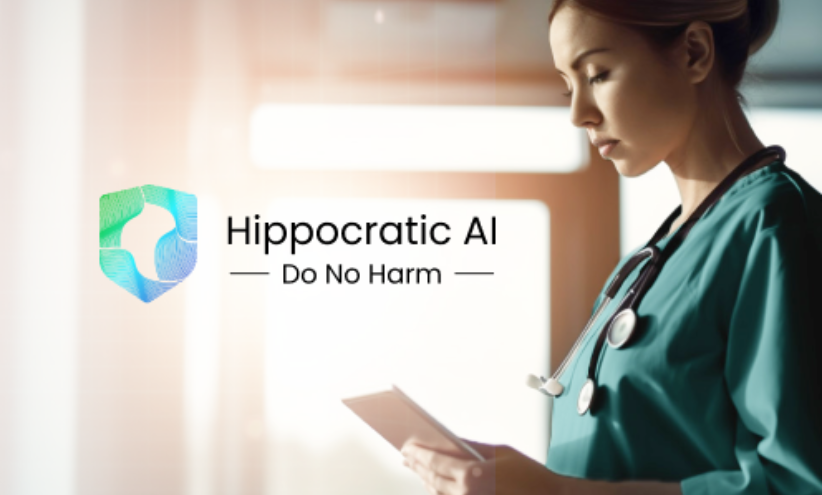 Healthcare staffing shortages were an issue even before COVID, but pandemic made all of that worse, with 334,000 healthcare providers dropping out of the workforce in 2021. In Q4 of that year alone, 117,000 physicians quit or retired, as did over 53,000 nurse practitioners. That means there will be fewer healthcare workers to help an aging population.
Healthcare staffing shortages were an issue even before COVID, but pandemic made all of that worse, with 334,000 healthcare providers dropping out of the workforce in 2021. In Q4 of that year alone, 117,000 physicians quit or retired, as did over 53,000 nurse practitioners. That means there will be fewer healthcare workers to help an aging population.
Of course, people will still need care and one of the ways to provide it is through chatbots and AI, which can help answer routine patient questions, allowing doctors to focus on their jobs. That’s one of the numerous potential uses of a Generative AI tools like ChatGPT and GPT-4; however, those are not specifically designed for the healthcare space.
Hippocratic AI, which officially launched out of stealth on Tuesday, along with a $50 million seed round co-led by General Catalyst and Andreessen Horowitz, has developed what it says is the industry’s first safety-focused Large Language Model (LLM) designed specifically for healthcare in order to power those chatbots.
“Hippocratic AI is focused on drastically increasing healthcare access by leveraging Generative AI to solve the massive global healthcare worker shortage; WHO warns of a 15 million shortage in healthcare workers,” Hippocratic’s co-founder and CEO Munjal Shah told VatorNews.
“We’ve all spent many years of our careers trying to fix healthcare access. Now, we feel that the technology finally exists to deliver affordable healthcare – especially to underserved communities and geographies.”
Founded by a group of physicians, hospital administrators, Medicare professionals, and artificial intelligence researchers from El Camino Health, Johns Hopkins, Washington University in St. Louis, Stanford, UPenn, Google, and Nvidia, Hippocratic AI is building a number of features that make its language model safer and tuned to the healthcare industry’s needs.
That includes certifying its system on not just the US Medical Licensing Exam (USMLE), as Shah says most others have done, but to certify it on 114 different healthcare certifications. It also built in voice capabilities through which the LLM can detect tone and can “communicate empathy far better than you can via text only.”
“Bedside manner is also key. Our model is the only model building in bedside manner. In healthcare, how you say something is just as important as what you say. Many studies have shown that bedside manner and leaving patients with a sense of hope – even in the grimmest of circumstances – can and does affect healthcare outcomes,” Shah explained.
Finally, the company has done Reinforcement Learning with Human Feedback (RLHF) with healthcare professionals; while RLHF is what allowed OpenAI to make the big leap from GPT3 to ChatGPT, though they did it with average consumers, not medical professionals. Hippocratic’s customers are health systems, and the company has in close collaboration with them during the development phase, and are continuing to use healthcare workers to train the model.
“We are conducting our RLHF with medical professionals and even going a step further by only releasing each role, such as dietician, billing agent, genetic counselor, etc., once the people who actually do that role today in real life agree the model is ready. This is central to our safety-first approach,” Shah said.
For now, Hippocratic is focusing on non-diagnosis because the team feels that LLMs are not yet safe enough; it is still patient-facing to reduce risk from LLMs, however, while still benefiting from their ability to lower the cost and increase the access of healthcare in the world.
Some future applications for the technology could include explaining medical bills to patients, explaining health insurance information and processes, providing pre-operation instructions and checklists, providing answers to most frequently asked questions after surgeries or procedures, providing diet and nutrition advice, and scheduling and basic logistical communications, such as directions and instructions, between patients and providers/
“There are thousands of Healthcare LLM use cases that don’t require diagnosis, so many more than one might expect. These include explanation of benefits/billing, dieticians, genetic counselors, pre-op questions, and delivering test results that are negative,” said Shah.
“The idea is to start with low-risk, non-diagnostic activities. Think about all of the questions patients have that are often answered by nurses or administration personnel and taking them away from human-facing and other important activities.”
As noted above, Hippocratic AI focused on testing its model on 114 healthcare certifications and roles; the idea was to not just get a passing score but to outperform existing state-of-the-art language models such as GPT-4 and other commercially available models. The company was able to outperform GPT-4 on 105 of the 114 tests and certifications, outperform by 5% or more on 74 of the certifications, and outperform by 10% or more on 43 of their certifications.
This new funding round is the first money into the company and Hippocratic AI will use it to continue to invest heavily in talent, compute, data and partnerships.
“Our mission is to develop the safest artificial Health General Intelligence (HGI) in order to dramatically improve healthcare accessibility and health outcomes,” said Shah.



















